Money Could Decide Super Tuesday
Competing in fourteen states plus overseas territories in one day is expensive.
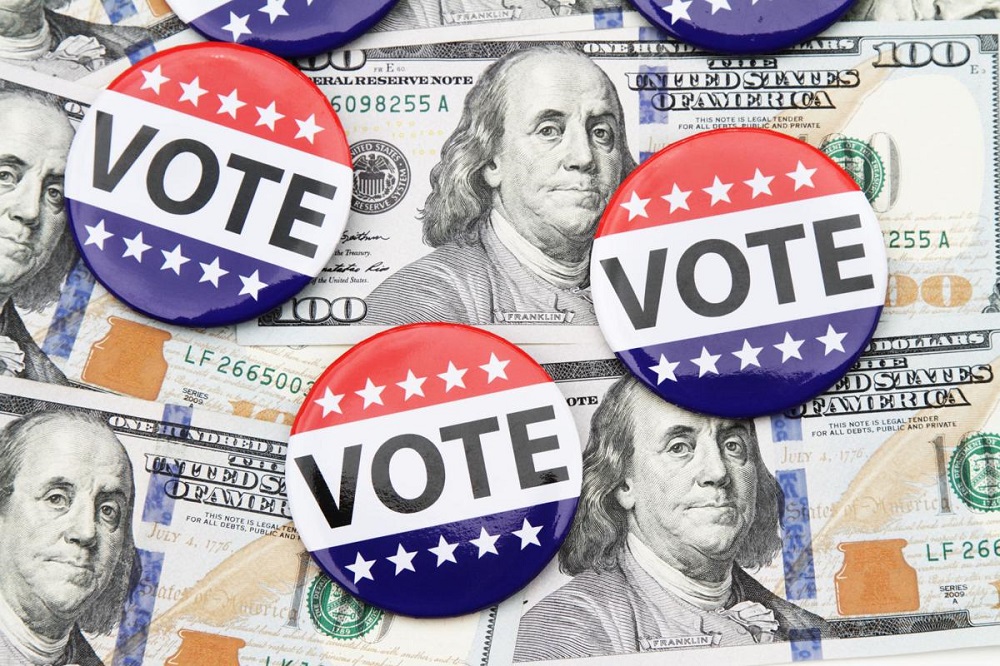
Joe Biden remains second in the national polling average. Pete Buttigieg leads the early delegate race. Elizabeth Warren had a big showing at the latest debate. Amy Klobuchar did slightly better than expected in New Hampshire. But their campaigns are all in danger of going broke.
POLITICO‘s Maggie Severns:
Joe Biden, Pete Buttigieg, Amy Klobuchar and Elizabeth Warren each started the month scraping perilously close to the bottom of their campaign bank accounts, posing an existential threat to their candidacies as the Democratic primary goes national.
They’re up against well-funded machines threatening to dominate the Democratic race: Bernie Sanders, whose recent rise in the polls has come during a major spending streak fueled by his online donors, and billionaire Mike Bloomberg, whose personal fortune has vaulted him into the middle of the campaign to take on President Donald Trump.
While Sanders started February with nearly $17 million in the bank, according to campaign finance disclosures filed Thursday night, his next closest rival (non-billionaire class) was Biden, at $7.1 million. Warren was closest to the red, with just $2.3 million left in her account, while Buttigieg ($6.6 million) and Klobuchar ($2.9 million) were in between.
The cash crunch comes at a critical time in the race, with nearly one-third of the delegates available in the primary up for grabs on Super Tuesday on March 3 — and only a handful of candidates able to marshal resources to advertise to voters in those 14 states. It’s why super PACs, demonized at the beginning of the 2020 primary, are suddenly jumping in to assist most Democratic candidates, and it’s why the campaigns are now making ever more urgent pleas for financial help.
The figures are based on FEC reports at the end of last month. As widely reported—and mentioned later in this report—Warren claims to have brought in $5 million after her debate showing.
Regardless, while one might think a couple of million dollars is a lot of money, it’s not when you need campaign staff across the country and to advertise in fourteen states—including California.
Bloomberg, fellow billionaire Tom Steyer and Sanders are the only candidates with more than $1 million in television advertising time already booked in the coming days in Super Tuesday states. Klobuchar has reserved about $874,000 so far in smaller states, skipping California and Texas, while Warren is advertising in smaller amounts in Colorado and Maine. Buttigieg has yet to reserve any TV ads beyond the South Carolina primary.
[…]
“There are only a couple candidates out there with the funds to compete in all of those Super Tuesday states,” said Ami Copeland, deputy national finance director for Obama’s 2008 campaign. Other campaigns “have to fight among themselves for the smaller states.”
That made Warren’s strong debate performance Wednesday night especially important for her campaign, which said it raised over $5 million in less than 24 hours — a much-needed influx and her best fundraising day to date.
The report is undercut somewhat by the next paragraph:
Meanwhile, single-candidate super PACs supporting Warren and Klobuchar have started airing ads in South Carolina and Nevada — after the candidates, especially Warren, have spent months decrying the influence of big money in politics. VoteVets, a super PAC that supports veterans and has endorsed Buttigieg, is airing ads backing him in the race.
That’s . . . awkward. But it would seem to belie the notion that they can’t afford to buy ads.
Only one of the non-billionaire candidates could afford to spend heavily preparing for the Feb. 3 Iowa caucuses and still have cash to spare: Sanders.
Sanders spent $26.5 million in the month of January, airing television ads and paying a staff of more than 1,000 people while still keeping enough in the bank to jump into California and Texas media markets ahead of most of his rivals.
The next biggest-spending campaign, Warren’s, spent nearly all of its available cash in January, shelling out $22 million and entering February with only $2.3 million cash on hand. The Warren campaign has a particularly large staff of more than 1,200 people, which cost $8.6 million in salary and payroll taxes in January alone.
Warren has also had to shuffle her television ad reservations in South Carolina and Nevada, cutting overall ad spending. Warren’s campaign was in such financial need that it took out a $400,000 loan in January, disclosures show.
But her campaign is now taking outside help that could offer it a lifeline: On Wednesday, a new super PAC, Persist PAC, began reserving seven figures worth of TV ads, boosting Warren’s campaign with an ad highlighting her experience at the Consumer Financial Protection Bureau.
Asked on Thursday if she would call on the super PAC to take the ads down, Warren declined to disavow the new group, despite her earlier opposition to super PACs in the race.
“If all the candidates want to get rid of super PACs? Count me in, I’ll lead the charge. But that’s how it has to be,” Warren told reporters.
That’s rather hypocritical and will surely be seized upon by Sanders to combat a resurgence in her campaign cutting into his support. But it’s not obvious what choice she has. Unilateral disarmament is seldom a wise tactic.

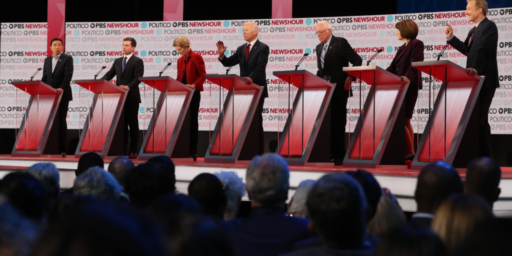
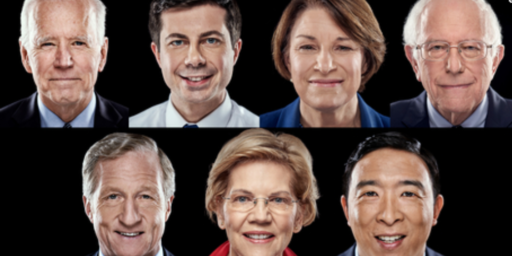
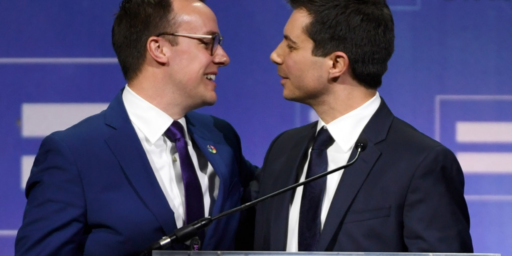
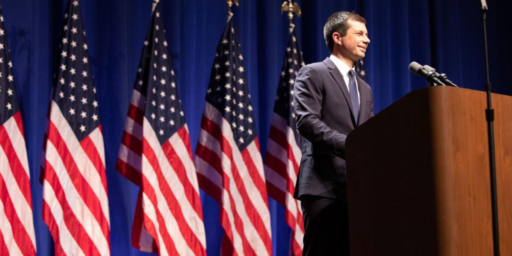
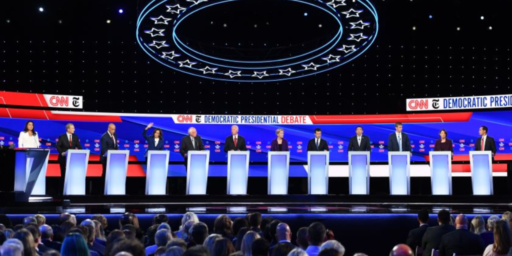
I’m so old, I remember when people actually thought votes decided elections.
test
@OzarkHillbilly:
OK Boomer. Enough with life was better… 🙂 Get with the new feudalism.
Frankly, it’s bad enough that billionaires buy politicians, now they’re out cutting out the middleman and simply buying the office.
Keep in mind that the billionaires we see, Bloomberg, Steyer, Yang, et al are the tip of the iceberg, the few with views that can be displayed in public. The bulk of the billionaire iceberg, Koch, Adelson, Uilein, Mercer, et al are lurking below the surface, operating out of sight through the politicians they own.
@OzarkHillbilly:
Ballots (citizen or electors) decide elections that is the thought that goes through my mind when I hear politcians cry that so-and-so is “buying” the election because they are spending more money than I have on advertising.
If advertising is “buying” an election, and politicians decry “buying the election” then ALL responsible candidates should avoid political advertising. (seems logical)
If candidate B spends 50% less than candidate A on political advertising, then by the “advertising=buying the election” logic, candidate B is only half as guilty as A.
Were I candidate B, I’d not want to be telling citizens that I’m only 50% guilty.
@gVOR08:
Not to quibble with your basic point, with which I agree, but …. a minor clarification … Andrew Yang is nowhere near billionaire territory. From various sources, Yang’s net worth: Forbes estimates $1 million; WSJ estimates between $834,000 and $2.4 million; Newsweek says between $3 million and $4 million.